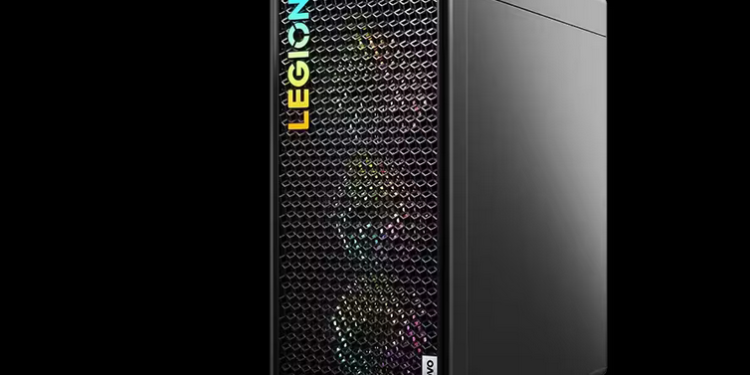A jet engine’s thunderous roar. When pushed to their limits, certain gaming PCs sound like this. But what if you want to perform at your best without being constantly interrupted?
It is possible to construct a silent but powerful gaming PC tower, with various advantages. Consider marathon gaming sessions without the need for headphones to block out the noise or flawless high-definition multimedia streaming without a distracting whirlwind.
Let’s look at the top ten tips for achieving this quiet yet powerful PC ideal.
Ten Tips For Building a Powerful Gaming PC Tower
1. Give Component Selection Top Priority: Cooling counts
The foundation of a silent PC gaming tower is the selection of components known for their effective cooling. Here is a breakdown of significant areas.
CPU: Look for CPUs that have a lower TDP. Try utilizing a high-quality aftermarket cooler that can be undervolted. CPUs such as AMD’s Ryzen Eco series or Intel’s K-series.
Ditch the standard CPU cooler! Purchase a high-performance air cooler with a huge heatsink and silent PWM (Pulse Width Modulation) fans. Popular options include the Noctua NH-D15 and the Be Quiet! Dark Rock Pro 4
GPU: Choose GPUs with low power usage or blower-style coolers, just as you would with CPUs. However, while blower-style coolers are quieter, they are also less efficient. Look at specialized cooling options for advanced users.
Case: Look for a case that has decent ventilation. Ideal cases include mesh front panels and strategically positioned dust filters. Brands like Fractal Design, Phanteks, and Be Quiet! Provide superb silent case alternatives.
Fans play an important part in cases. Select high-quality PWM fans with minimal noise output and adequate static pressure. Popular options include Noctua NF-Series and Be Quiet!
2. Consider Optional Liquid Cooling for Silent Wings
Liquid cooling dissipates heat more efficiently than air coolers, potentially resulting in quieter operation. However, it necessitates additional planning and maintenance:
Consider closed-loop AIO (All-in-One) liquid coolers. These are easier to install than specialized loops and provide adequate performance and noise reduction. Popular choices include the NZXT Kraken X series or Staying Quiet! Silent
Check radiator compatibility: Select a radiator size that fits your case and offers adequate cooling for your CPU.
Proper installation is essential: Leaking fluids can cause computer harm. Ensure correct installation by connecting securely and testing for leaks.
3: Use Cable Management to Its Full Potential
A well-managed cable interior in a gaming computer tower enhances ventilation while simultaneously lowering noise. Here are some of the practices:
Utilize the case’s zip ties and cable management channels.
If your case allows for it, route cables beneath the motherboard tray.
Excess wire length should be tucked away carefully to prevent blocking fans and airflow routes.
4: Use BIOS Settings for Fine-Tuning Fan Curves
Most motherboards have fan control options in the BIOS. Here’s how you can use them:
During startup, navigate to the BIOS by pressing the designated key (typically DEL or F2).
Locate the part that controls the fans.
Create fan curves to control fan speed based on component temperature.
Strive for a balance to keep components cool and minimize noise.
5: Purchase a High-Quality Power Supply Unit (PSU)
A good power supply unit not only provides clean electricity but also operates effectively, generating less heat and, as a result, less fan noise. Here are a few crucial points:
Select a power supply unit (PSU) with a wattage rating that exceeds the requirements of your system.
Look for semi-fanless or quiet mode power supplies, which have a fan that only turns on when necessary. Seasonic, Corsair, and Be Quiet! are all popular brands.
6: Optimize the Operating System
Tweaking your operating system can lead to a quieter computer.
Adjust power settings: Choose the “Balanced” or “Power Saver” options to reduce power usage and maybe quieter fans.
Disable any needless startup programs: Fewer apps running at startup result in reduced CPU burden and, potentially, quieter operation.
7. Maintain a Clean System
Dust buildup reduces airflow and pushes fans to work harder, increasing noise. Here’s how to keep everything clean:
Keep your case clean regularly. Dust may be removed from fans, vents, and heatsinks using compressed air.
Dust filters should be cleaned or replaced regularly to ensure optimal airflow in the case and PSU.
8. Use Sound-Dampening Materials
The use of sound-dampening materials in your gaming PC tower can dramatically minimize noise pollution created by internal components and fan movements.
Consider lining the chassis’ internal walls with acoustic foam or sound-absorbing panels to attenuate sound waves.
Consider a case with noise-reducing features like soundproofing insulation and vibration-dampening mounts for hard drives and fans.
9. Place Components Strategically
To maximize airflow and reduce noise generation, consider the placement and orientation of components within the gaming PC tower.
Position the GPU and CPU coolers to allow for clear circulation and prevent hot air from recirculating inside the case.
Use cable management strategies to direct cables away from airflow routes and keep them from interfering with fan performance.
10. Optimize Based on Your Needs
Not all games are made equal. Some titles are more graphically challenging than others. Consider modifying the in-game graphics settings to achieve a balance between visual quality and performance. Lowering settings like as anti-aliasing and resolution scaling can considerably reduce GPU effort and heat generation, allowing for more peaceful operation.
Final Thoughts
Building a quiet but powerful gaming PC tower involves careful planning, attention to detail, and a willingness to experiment with various components and setups. Following the ten guidelines in this article will allow you to build a gaming rig that gives great performance while running quietly and effectively.
Whether you’re a casual player or a seasoned fanatic, devoting time and effort to creating a quiet gaming PC tower will surely improve your gaming experience. Also, it helps you to fully immerse yourself in the virtual worlds of your favourite games.



















